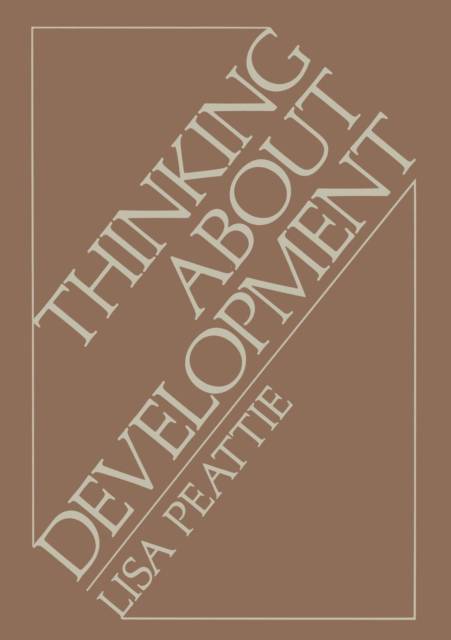
Bedankt voor het vertrouwen het afgelopen jaar! Om jou te bedanken bieden we GRATIS verzending (in België) aan op alles gedurende de hele maand januari.
- Afhalen na 1 uur in een winkel met voorraad
- Gratis thuislevering in België vanaf € 30
- Ruim aanbod met 7 miljoen producten
Bedankt voor het vertrouwen het afgelopen jaar! Om jou te bedanken bieden we GRATIS verzending (in België) aan op alles gedurende de hele maand januari.
- Afhalen na 1 uur in een winkel met voorraad
- Gratis thuislevering in België vanaf € 30
- Ruim aanbod met 7 miljoen producten
Zoeken
Omschrijving
This book intends to be helpful to people-students and oth- ers-who are beginning to think about how to change the world via that activity we call development planning. The issues of What is Progress? and How do we get it? are world-wide, although they appear in different form in societies like our own from the way they do in the Third World countries with their explicit development planning. These are two very big questions and have no easy or final answers. However, we can think about them in more rather than less effective ways. Thinking about them can be both a way of beginning to take action on issues of growth and change, and a way of understanding our own situation. vii viii I PREFACE This book argues that thinking about development plan- ning has gotten into trouble by dividing economy from so- ciety, and misconstruing moral-social-political issues as tech- nical ones. Development planning has centered on economic planning, treating social issues as obstacles to growth, or as problems arising out of economic change. The book takes up a number of specific topics which enter into development planning-topics such as the organization of work, educa- tional planning, family policy-to show how in reality the social and the economic, the moral and the technical, are one, and how thinking about policy in each area should therefore take an integrated perspective.
Specificaties
Betrokkenen
- Auteur(s):
- Uitgeverij:
Inhoud
- Aantal bladzijden:
- 198
- Taal:
- Engels
- Reeks:
Eigenschappen
- Productcode (EAN):
- 9781468411034
- Verschijningsdatum:
- 2/03/2012
- Uitvoering:
- Paperback
- Formaat:
- Trade paperback (VS)
- Afmetingen:
- 148 mm x 210 mm
- Gewicht:
- 258 g

Alleen bij Standaard Boekhandel
+ 167 punten op je klantenkaart van Standaard Boekhandel
Beoordelingen
We publiceren alleen reviews die voldoen aan de voorwaarden voor reviews. Bekijk onze voorwaarden voor reviews.









